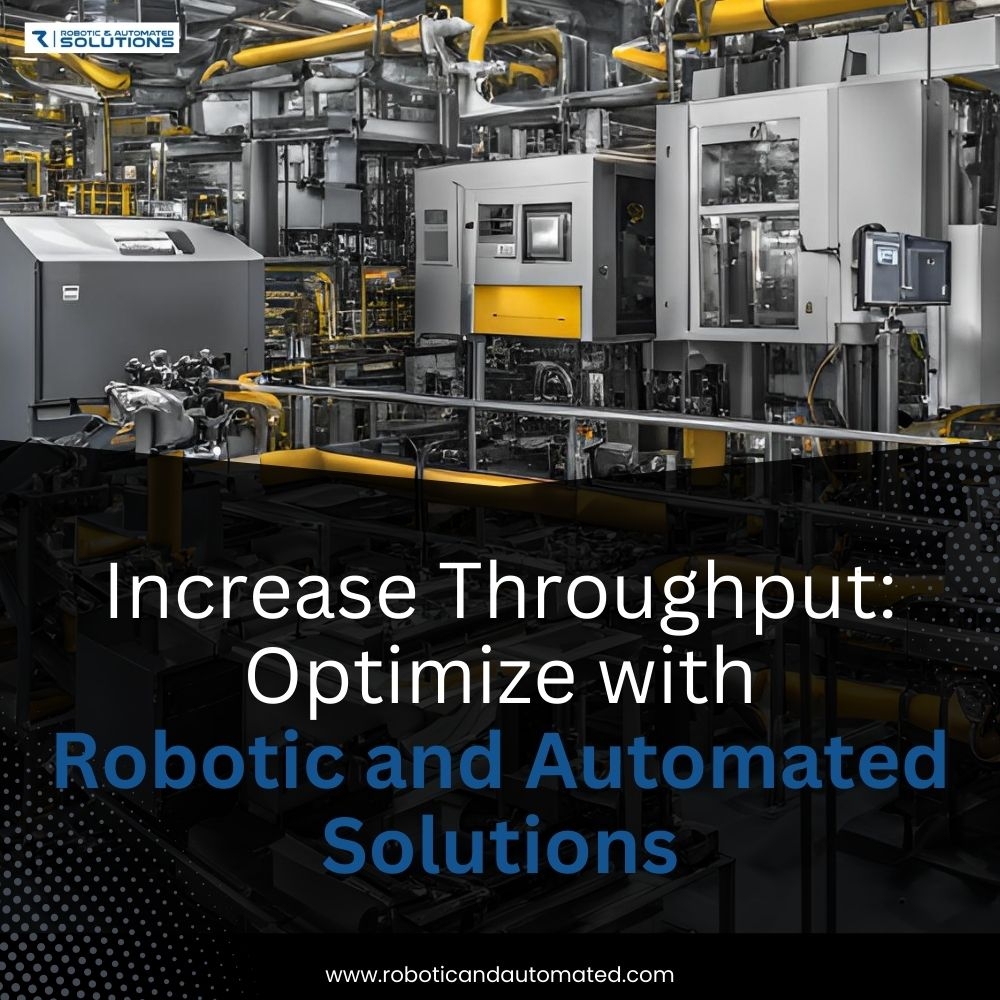Increase Throughput: The Role of Automation Engineering

In the realm of industrial manufacturing, throughput is a pivotal measure of productivity and operational efficiency. For companies striving to enhance profitability and strengthen their market position, focusing on increasing throughput is crucial. Automation engineering and automation return on investment (ROI) consulting play integral roles in achieving these goals. By leveraging these approaches effectively, manufacturers can streamline operations, minimize downtime, and significantly boost throughput.
Understanding Throughput in Manufacturing
Throughput in the manufacturing context refers to the rate at which a company produces finished products, typically measured in units per hour or per day. A higher throughput indicates a more efficient production process, leading to increased revenue and market share. For manufacturers, maximizing throughput translates to enhanced operational efficiency and a competitive edge.
The Influence of Automation Engineering
Automation engineering involves designing and implementing automated systems to manage machinery and processes. This field employs advanced technologies such as robotics, artificial intelligence (AI), and machine learning to elevate production capabilities.
Benefits of Automation Engineering
Improved Efficiency: Automated systems operate with greater speed and accuracy compared to human labor. This increased efficiency reduces cycle times and accelerates overall production rates.
Consistency and Quality: Automation ensures consistent production quality, minimizing variability and enhancing product standards. Each item is produced to the same high specification.
Reduced Labor Costs: By automating repetitive and labor-intensive tasks, companies can reallocate human resources to more strategic roles, thereby lowering labor costs.
Scalability: Automation systems provide flexibility, allowing manufacturers to adjust operations according to varying production demands.
Enhanced Safety: Automated systems handle hazardous tasks, reducing workplace accidents and improving overall safety.
The Role of Automation ROI Consulting
Automation ROI consulting offers a strategic approach to evaluating the financial benefits of automation systems. Consultants assess current production processes, identify opportunities for automation, and estimate the potential return on investment. They also guide technology selection and integration, ensuring that the solutions align with the company’s long-term objectives and deliver sustainable value.
Key Stages in Automation ROI Consulting
Initial Assessment: Reviews existing manufacturing processes to identify inefficiencies and potential automation opportunities.
Feasibility Study: Conducts a thorough analysis to determine the technical and financial viability of automation, including equipment, software, and training costs.
ROI Calculation: Estimates potential savings and revenue increases from automation, factoring in elements such as increased throughput, reduced labor costs, and improved product quality.
Implementation Plan: Develops a detailed plan for deploying automation solutions, including timelines, resource allocation, and risk management.
Performance Monitoring: Oversees the performance of automated systems post-implementation to ensure they meet projected ROI targets.
Increasing Throughput with Automation
The primary goal of integrating automation in manufacturing is to increase throughput. Automation achieves this through various means:
Streamlining Production Processes: Automated systems eliminate bottlenecks and ensure a smooth flow of materials and products. Conveyor systems, automated guided vehicles (AGVs), and robotic arms work together to enhance production efficiency.
Reducing Downtime: Automation systems are designed for high reliability and minimal maintenance. Predictive maintenance technologies, which utilize sensors and data analytics to predict and prevent equipment failures, further minimize unplanned downtime.
Optimizing Inventory Management: Automation enhances inventory management by ensuring materials and components are available as needed without overstocking. Automated inventory systems use real-time data to monitor levels, forecast demand, and trigger replenishment orders, thus avoiding production delays.
Enhancing Production Scheduling: Advanced scheduling software optimizes production schedules by considering machine availability, workforce capacity, and order deadlines. This leads to efficient schedules that reduce idle time and maximize output.
Challenges and Considerations
Despite the benefits of automation engineering and ROI consulting, there are challenges manufacturers must address to enhance throughput:
Initial Investment: The cost of implementing automation systems can be substantial. Manufacturers need to evaluate ROI carefully to ensure that the investment yields long-term benefits.
System Integration: Integrating new automation technologies with existing systems can be complex. Ensuring compatibility and seamless operation is essential.
Workforce Impact: Automation may affect the workforce, necessitating retraining and redeployment of employees. Managing this transition is crucial for maintaining morale and productivity.
Cybersecurity: Automated systems are vulnerable to cyber threats. Implementing robust cybersecurity measures is vital to protect sensitive data and ensure process integrity.
Future Trends in Automation Engineering
The field of automation engineering is rapidly advancing. Some emerging trends that are expected to further enhance throughput include:
Artificial Intelligence and Machine Learning: AI and machine learning algorithms analyze extensive data sets to optimize production processes, predict maintenance needs, and improve decision-making.
Collaborative Robots (Cobots): Cobots work alongside human operators, boosting productivity and safety. They are versatile, easy to program, and applicable in various tasks.
Industrial Internet of Things (IIoT): IIoT connects machines, sensors, and systems to the internet, enabling real-time data collection and analysis. This connectivity enhances monitoring, control, and optimization of manufacturing processes.
3D Printing: 3D printing technology revolutionizes manufacturing by enabling the rapid production of complex parts, reducing lead times, and offering greater customization and flexibility.
Conclusion
Increasing throughput is a vital objective for manufacturing companies. Automation engineering and ROI consulting offer essential tools and insights to achieve this goal. By optimizing production processes, minimizing downtime, and effectively utilizing resources, automation significantly enhances productivity and profitability. As technology progresses, automation's potential to transform manufacturing and boost throughput will continue to expand, making it a crucial strategy for forward-thinking companies. Embracing these advanced solutions not only future-proofs operations but also ensures a competitive advantage in the evolving industrial landscape.
For additional information, please contact us.
- Industry
- Art
- Causes
- Crafts
- Dance
- Drinks
- Film
- Fitness
- Food
- Games
- Gardening
- Health
- Home
- Literature
- Music
- Networking
- Other
- Party
- Religion
- Shopping
- Sports
- Theater
- Wellness
- News


